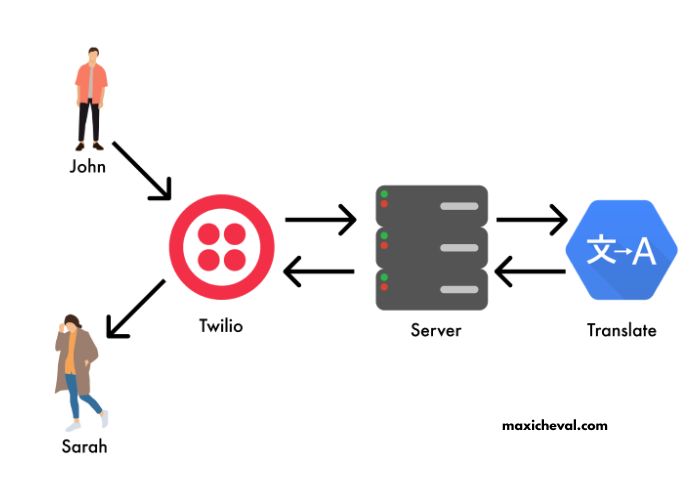In the relentless march of human progress, few forces have shaped our world as profoundly as technology. From the invention of the wheel to the development of the internet, each innovation has pushed the boundaries of what’s possible, redefining how we live, work, and interact. In the 21st century, this transformation is accelerating at an unprecedented pace, ushering in a new era of tech-driven change that promises to reshape every aspect of our lives. This article explores the profound impact of technology on our world, examining how it’s already transforming industries, societies, and individual experiences, and peering into the future to anticipate the next wave of innovations that will shape tomorrow’s world.
The Current Landscape of Tech-Driven Transformation
As we stand at the crossroads of the 21st century, it’s impossible to ignore the profound ways in which technology is already shaping our world. From the smartphone in your pocket to the algorithms powering your social media feed, tech-driven transformation is all around us.
Connectivity and Communication
One of the most visible impacts of technology is in the realm of connectivity and communication. The advent of the internet, followed by the proliferation of smartphones and social media, has made it possible for people to connect and communicate across vast distances instantly. This has had far-reaching implications for everything from business to personal relationships.
For instance, in business, teams can collaborate across continents, and companies can reach customers on a global scale. The COVID-19 pandemic further accelerated this trend as remote work and virtual meetings became the norm for many organizations. Even healthcare saw a transformation, with telemedicine becoming a viable option for routine medical consultations.
In personal life, social media has redefined how we interact with friends, family, and even strangers. It’s created new avenues for self-expression, activism, and entertainment. But it’s not without its challenges, as issues like online harassment and privacy concerns have emerged as significant societal issues.
Automation and Artificial Intelligence
Automation and artificial intelligence (AI) are driving transformations in industries ranging from manufacturing to finance. These technologies are capable of performing tasks that were once the exclusive domain of humans, and they’re doing so with remarkable efficiency.
In manufacturing, robots and automation systems are streamlining production processes, reducing errors, and increasing productivity. In agriculture, drones and AI-powered sensors are helping farmers optimize crop yields while conserving resources. In finance, AI algorithms are making trading decisions at speeds and with precision beyond human capabilities.
The implications of this automation are complex. On the one hand, it promises increased productivity and cost savings. On the other hand, it raises concerns about job displacement and the need for reskilling the workforce. Striking a balance between the advantages of automation and the need to support those affected by it is a significant challenge for society.
Healthcare and Biotechnology
Technology is also revolutionizing the field of healthcare and biotechnology. Advances in genomics, data analytics, and medical imaging are enabling more precise diagnoses and personalized treatments. Telemedicine, wearable health tech, and AI-driven diagnostic tools are changing how we access and receive healthcare.
The development of mRNA vaccines, such as those for COVID-19, showcased the potential of biotechnology to rapidly respond to global health crises. Additionally, CRISPR gene-editing technology holds the promise of curing genetic diseases.
However, the ethical and regulatory challenges posed by these advances are considerable. Questions about genetic privacy, equitable access to healthcare, and the potential for misuse of biotechnology loom large.
Energy and Sustainability
Tech-driven transformation is essential for addressing one of the most pressing global challenges: climate change. Sustainable energy solutions, such as solar and wind power, have become more efficient and cost-effective thanks to technological advancements. Smart grids and energy storage technologies are helping to balance energy supply and demand.
Electric vehicles (EVs) are on the rise, driven by improvements in battery technology and charging infrastructure. These developments promise to reduce greenhouse gas emissions from the transportation sector significantly.
However, transitioning to a sustainable future is not without hurdles. The need for rare earth minerals in renewable technologies raises concerns about resource availability, and the energy storage capabilities of batteries are still evolving.
Education and Remote Learning
The education sector has undergone a radical transformation, with technology playing a central role. The COVID-19 pandemic accelerated the adoption of remote learning tools, but even before that, e-learning platforms, online courses, and educational apps were on the rise.
Technology has made education more accessible, allowing people from diverse backgrounds and locations to access high-quality learning resources. It’s also enabled more personalized learning experiences through adaptive algorithms that tailor content to individual needs.
However, the digital divide remains a significant issue, as not all students have equal access to the necessary technology and internet connectivity. Additionally, questions about the effectiveness of online learning and its impact on social development continue to be subjects of debate.
Entertainment and Content Creation
Entertainment has been profoundly impacted by technology. Streaming services have disrupted traditional cable TV, putting content consumption in the hands of consumers who can watch what they want, when they want it. Virtual reality (VR) and augmented reality (AR) are pushing the boundaries of immersive experiences, from gaming to interactive storytelling.
User-generated content platforms like YouTube and TikTok have empowered individuals to become creators and influencers, blurring the lines between traditional celebrities and everyday people. Algorithms and data-driven recommendations have changed how we discover and consume entertainment.
However, concerns about the influence of technology on mental health, privacy, and the authenticity of content are ongoing. The balance between convenience and potential harm is a topic of ongoing debate.
The Next Frontiers of Tech-Driven Transformation
While the current landscape of tech-driven transformation is already profound, the future promises even more radical changes. Let’s explore some of the next frontiers of technological innovation and their potential impacts.
Artificial Intelligence and Machine Learning
AI and machine learning will continue to advance, with applications expanding into areas like natural language processing, computer vision, and robotics. These technologies will drive automation in industries like healthcare (robotic surgery), transportation (self-driving cars), and customer service (chatbots).
The ethical implications of AI will become even more pronounced, leading to discussions about responsible AI development, bias mitigation, and accountability for AI-driven decisions.
Quantum Computing
Quantum computing represents a paradigm shift in computation. It has the potential to revolutionize fields such as cryptography, materials science, and drug discovery. Quantum computers are expected to perform calculations at speeds that would be inconceivable with classical computers.
However, quantum computing also presents security challenges, as it could potentially crack current encryption methods. Preparing for this future will involve developing quantum-resistant encryption techniques.
Augmented and Virtual Reality
AR and VR will expand beyond gaming and entertainment into fields like education, healthcare, and remote work. AR glasses may become a common tool for accessing information in real-time, while VR can enable immersive training experiences and remote collaboration.
The social and psychological impact of prolonged VR use, especially in a work context, will be an important area of research and discussion.
Biotechnology and Genetic Engineering
Advances in biotechnology, such as CRISPR gene editing, will lead to breakthroughs in treating genetic diseases and potentially extending human lifespan. However, the ethical implications of manipulating the human genome will become even more complex.
Sustainability and Clean Energy
Renewable energy sources will continue to evolve, with innovations in solar, wind, and nuclear technologis. Energy storage solutions




